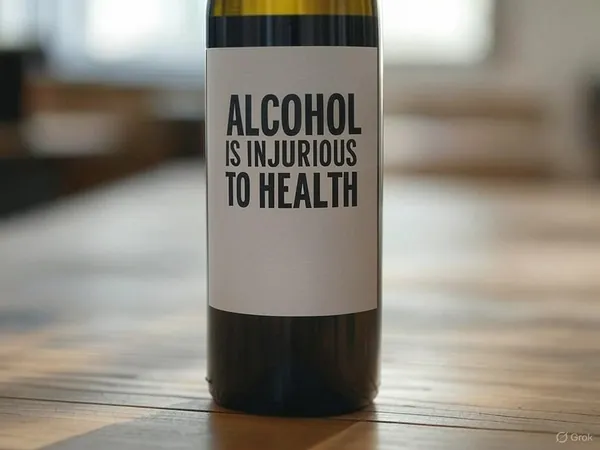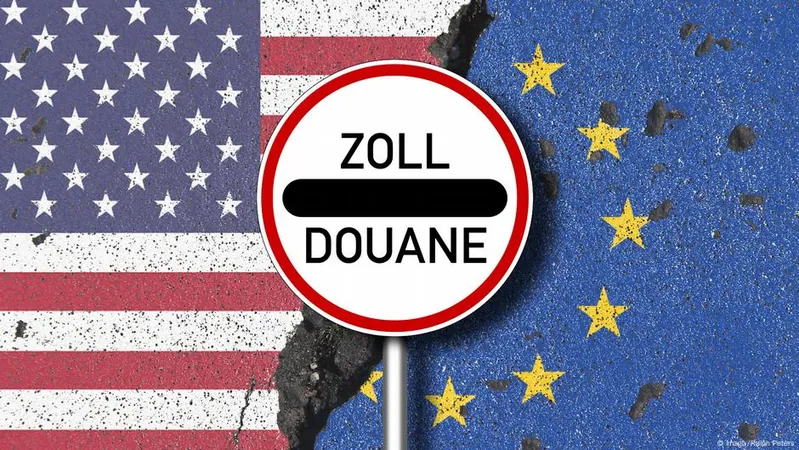
Sip With Caution: Should Alcohol Bottles Come With Warning Labels? Experts Weigh In
2025-03-26
Author: Charlotte
Introduction
In a world increasingly aware of health risks, the debate over whether alcohol bottles should feature warning labels similar to those seen on tobacco products has gained momentum. The World Health Organization (WHO) has classified alcohol as a Group 1 carcinogen, leading many to question if consumers are sufficiently informed about the dangers associated with alcohol consumption.
Activist Initiative
This discussion ignited when a 24-year-old activist from Pune filed a public interest litigation (PIL) in the Bombay High Court, arguing that the absence of explicit cancer warnings on alcohol bottles poses additional health risks to consumers and asserts that "consumers have the right to know" about its dangers. In January, the court demanded responses from the Indian government, Maharashtra state authorities, and the Food Safety and Standards Authority regarding this pressing issue.
Expert Opinions
Experts who spoke to NDTV Profit were largely in favor of implementing warning labels. Dr. Arvinder Soin, the chairman and chief surgeon of Medanta Liver Institutes, stated, "Alcohol is injurious to health. Just as there is a statutory warning on smoking, I believe it is appropriate to have a similar warning on alcohol bottles." His statement underscores the responsibility of health systems and government entities to advocate for healthier lifestyle choices, which he believes should include moderate or no alcohol consumption.
International Precedents
The call for warning labels isn't unique to India; some countries are setting precedents. Since 2016, South Korea has mandated that alcohol products carry warnings regarding liver cancer risks. Meanwhile, Ireland is set to implement mandatory warning labels that specifically address liver diseases starting in 2026. These international measures may pave the way for similar initiatives in other nations, including India.
Support for Warning Labels
Prominent health influencer Revant Himatsingka, known as 'Foodpharmer', also voiced his support for warning labels, stating, "In my opinion, there should definitely be a warning label. There is no valid argument against having one." He further advocated for transparency by suggesting that bottles should also disclose calorie information, promoting informed consumption.
Industry Perspective
Conversely, not all industry representatives are in favor. Vinod Giri, director general of the Brewers Association of India, pointed out that alcohol products in India already carry a statutory warning stating, "Consumption of alcohol is injurious to health." He implied that while a label is present, it is crucial to differentiate between moderate and excessive consumption, suggesting that responsible drinking should be recognized.
Conclusion
As the Bombay High Court deliberates on the PIL, the potential implementation of warning labels on alcohol bottles could mark a significant shift in public health messaging. This dialogue not only champions consumer rights but could also lead to a broader acceptance of responsible drinking norms, making it a pivotal moment in health advocacy. With these discussions gaining traction, will India take action to protect its consumers from the lurking dangers of alcohol? Only time will tell.









 Brasil (PT)
Brasil (PT)
 Canada (EN)
Canada (EN)
 Chile (ES)
Chile (ES)
 Česko (CS)
Česko (CS)
 대한민국 (KO)
대한민국 (KO)
 España (ES)
España (ES)
 France (FR)
France (FR)
 Hong Kong (EN)
Hong Kong (EN)
 Italia (IT)
Italia (IT)
 日本 (JA)
日本 (JA)
 Magyarország (HU)
Magyarország (HU)
 Norge (NO)
Norge (NO)
 Polska (PL)
Polska (PL)
 Schweiz (DE)
Schweiz (DE)
 Singapore (EN)
Singapore (EN)
 Sverige (SV)
Sverige (SV)
 Suomi (FI)
Suomi (FI)
 Türkiye (TR)
Türkiye (TR)
 الإمارات العربية المتحدة (AR)
الإمارات العربية المتحدة (AR)